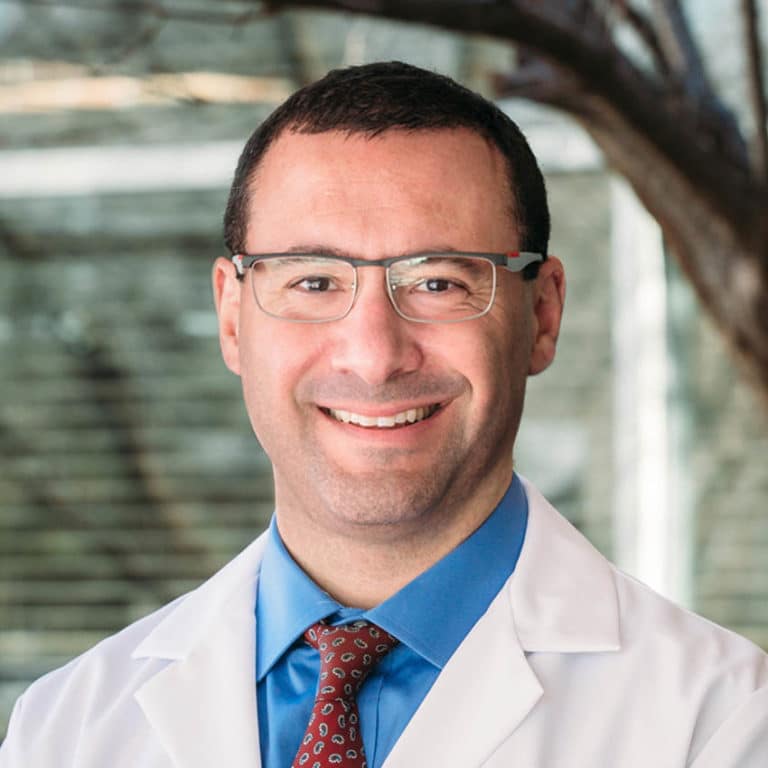Given the relative novelty of egg freezing, it’s understandable that many women have questions ranging from “How much does egg freezing cost?” to “Does egg freezing work?” and “When should I consider egg freezing?” And the list goes on.
Over the past several years, the egg freezing program at SGF has grown tremendously. This growth, coupled with our size and experience, has enabled us to create new financial programs to better serve our patients—each intended to better meet the needs of women who are interested in egg freezing.
If you’re considering freezing your eggs, we’ve compiled this list of helpful egg freezing facts.
Medical contribution by Caleb Kallen, M.D., Ph.D.
Caleb Kallen, M.D., Ph.D., FACOG, is board certified in obstetrics and gynecology and reproductive endocrinology and infertility. Dr. Kallen has expertise in the diagnosis and treatment of infertility, including in vitro fertilization (IVF), ovulation induction with intrauterine inseminations (IUI), donor egg treatments, endometriosis, polycystic ovary syndrome, and preimplantation genetic diagnosis. He sees patients in SGF’s Philadelphia and Mechanicsburg, Pennsylvania, offices.
Who is freezing eggs?
Egg freezing is an important option to protect fertility potential, which declines with age, freezing is primarily for women between the ages of 30 and 40. Typically, women who opt to freeze eggs want to have a baby in the future but, because of careers, relationships, or personal choice, need to postpone childbearing. Other reasons women may decide to freeze eggs include health concerns, such as planned surgeries for endometriosis or fibroids, or prior to cancer treatments, each of which can threaten future fertility potential.
Whatever the reason for freezing your eggs, the important thing to know is that egg freezing gives women the option to have children when the timing is right.
Here are 22 helpful facts to consider if you are contemplating egg freezing:
- Some health-related reasons women may consider egg freezing include: endometriosis, fibroids, diminished ovarian reserve/low egg supply, a family history of early menopause, and cancer.
- Excluding health-related issues, the #1 reason women decide to freeze eggs is to have options for family building in the future.
The science & technology behind egg freezing
- A woman’s ability to conceive is largely determined by her age. As women age, both egg quantity and egg quality decrease. This can be demonstrated by measuring the percentage of chromosomally abnormal eggs that a women produces, a figure that increases as women age. The progressive loss of eggs over time is not a result of poor health or lifestyle, it is an unfortunate feature of ovarian biology. Egg freezing can extend the biological clock by essentially locking in the fertility potential where it is at the time a woman freezes her eggs; the frozen eggs of a 30 year old will always behave like those of a 30 year old (i.e. better pregnancy rates, lower risk of miscarriage), even if those eggs are used when the patient is 40 years old.
- Every woman is born with a set a number of eggs.At 20 weeks gestation, each female fetus has about 6 million eggs—the most eggs she will ever have in her lifetime. At birth, she has already lost approximately half of her eggs and by the time she reaches puberty, she has only about 200,000-400,000 left.
- Not every egg can produce a viable pregnancy; therefore, we generally recommend that women 37 or younger who have excellent ovarian function freeze between 15 and 20 mature eggs. For women over 38, or women at any age with diminished ovarian function, we recommend freezing 25 to 30 eggs.
- In order to generate a cohort of mature eggs, fertility medication is used to stimulate the ovaries. This process takes about 2 weeks.
- We freeze eggs in liquid nitrogen; eggs can remain frozen indefinitely.
- Choosing to freeze your eggs has no detrimental effect on your future fertility…the process does not “use up” or exhaust the existing supply of eggs or lead to earlier menopause.
- Women 37 years or younger, with normal ovarian reserve, will likely retrieve an average of 13 eggs per cycle. Therefore, it will take most women at least two treatment cycles to reach the optimum number of 15 to 20 eggs for storage.
- Vitrification, a fast-freeze technology, was introduced in 2009 and is the most reliable form of freezing eggs.
- All frozen eggs are stored at SGF’s state-of-the-art laboratories with many redundant quality controls and stringent identity protocols in place, each for your protection.
What is the best age to freeze your eggs?
While there is considerable variation between women with respect to the rate of decline of egg supply, in general, the optimal time to freeze is in the early- to mid-30s, while fertility potential is still near its peak. However, at SGF, you can freeze your eggs between the ages of 18 and 40 (depending upon circumstances).
- Egg quality—otherwise known as your fertility potential—typically remains relatively high into a woman’s early- to-mid 30s, but then generally declines more rapidly in the late 30s and early 40s.
- There is no perfect age for egg freezing, but freezing earlier will yield better results.
- The term ovarian reserve quantifies a woman’s remaining egg supply. There is no perfect way to measure ovarian reserve but several tests are combined to provide a best estimate of ovarian reserve; your SGF physician will help you to interpret your test results.
- One predictor of a woman’s ovarian reserve, the Ovarian Assessment Report (OAR), relies on several reproductive hormone levels along with age, in order to estimate egg yield in a typical treatment; the OAR reports your egg supply as “good, normal, or poor.”
- SGF is one of the only fertility centers in the U.S. with peer-reviewed and published outcomes data from women who have frozen and then thawed their eggs to produce pregnancies.
Egg freezing costs
The cost of egg freezing varies across the county. Some centers offer flat rates on a per cycle basis, others offer financial plans. In order to make an educated decision, it is important to get as much information, not only about the costs, but also about the quality, experience, and expertise of the fertility center.
- Diagnostic testing, including ovarian reserve testing as well as physician consultation, is covered by SGF’s 30+ participating insurance providers. 90 percent of women have insurance coverage for testing and physician consultation. Learn more about testing.
- SGF created the first “flat-fee guarantee” financial programs of their kind, the Assure20 and Assure30, which offer a single cost for multiple treatment cycles. These programs guarantee either a certain number of eggs for banking, or a certain number of treatment cycles, whichever comes first (i.e. you are guaranteed to freeze twenty (or thirty) mature eggs, or undergo at least four treatment cycles, whichever comes first).
- The cost of medication will depend upon an individual’s dosing, which is determined by the patient’s response to medications. Some patients may have insurance coverage for medications.
- Financing is available with all egg freezing financial programs through a Shady Grove Fertility partner, Fertility Finance.
- The newest option for egg freezing candidates is a discount financial program that offers cycles as low as $200/month depending on credit and length of term, plus a partial refund on storage for women who choose to thaw/use their eggs early.
- SGF is one of the leading fertility centers in the country with over 50,000 babies born, and counting. With 42 physicians and 29 locations throughout MD, PA, VA, D.C., and GA, we offer patients individualized care for each person’s unique journey.
To learn more about egg freezing, call our New Patient Center at 1-877-971-7755 to schedule an appointment with a physician or complete our brief online form.






